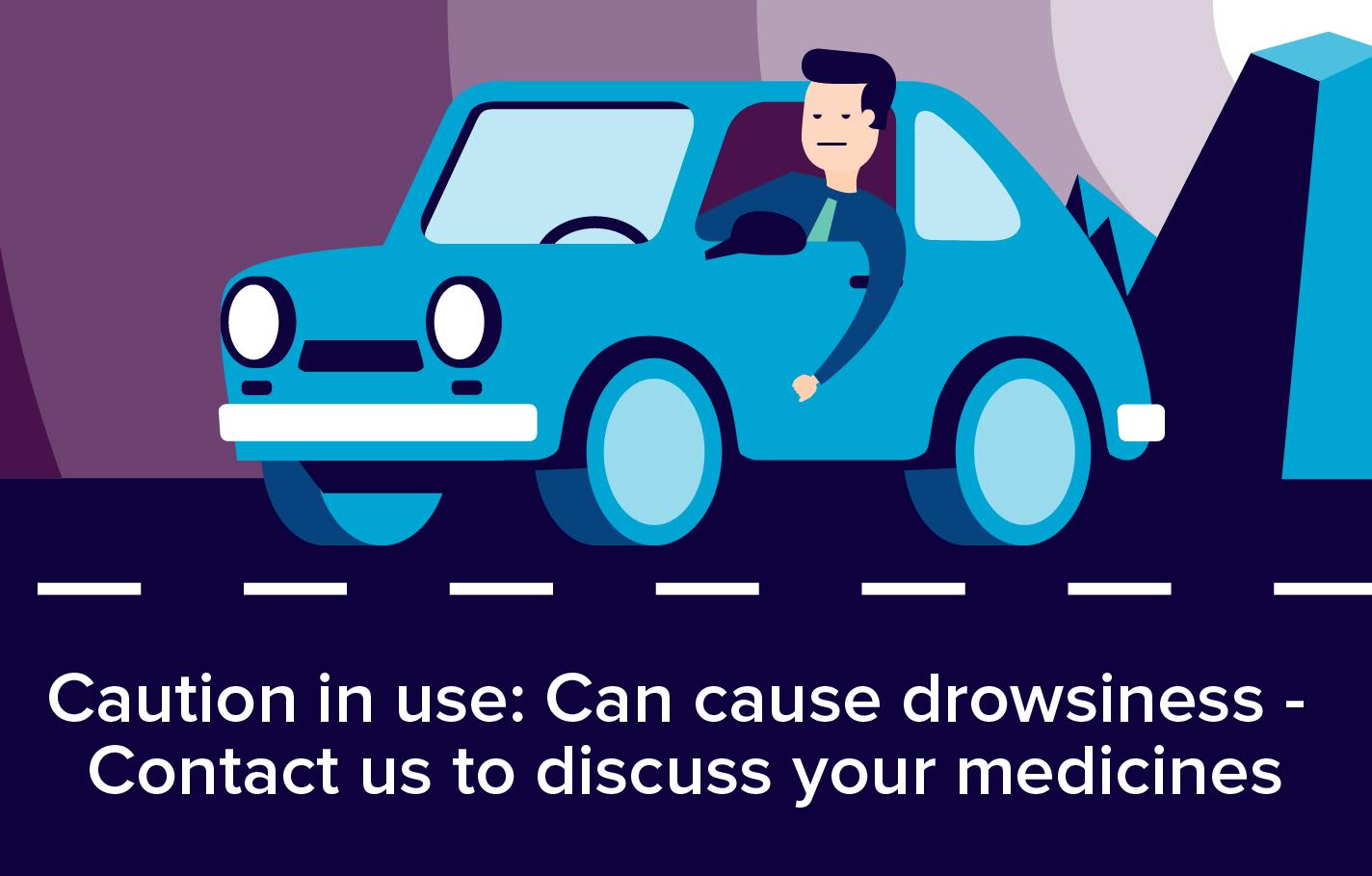Halcion is used for the short term treatment of insomnia (difficulty in falling asleep or sleeping properly) and so you will not usually be given Halcion tablets to take for more than 2-3 weeks. Talk to your doctor about this if you are worried.

Why have I been prescribed Halcion?
- Halcion is used for the short term treatment of insomnia (difficulty in falling asleep or sleeping properly) and so you will not usually be given Halcion tablets to take for more than 2-3 weeks.
- Talk to your doctor about this if you are worried.
How does it work?
Halcion belongs to a group of medicines called benzodiazepines. These work by increasing the amount of a certain chemical in the brain which calms the brain down and stops the nerves firing inappropriately.
When and how do I take it?
- Take your medicine shortly before going to bed. The tablet may be swallowed with a glass of water or milk. Do not have an alcoholic drink.
- If you have forgotten to take your medicine at your usual time or cannot remember if you have taken it, do not take a tablet as you may risk oversleeping the next morning.
- You will probably not sleep as well that night, but do not worry; just take your medicine the next night as usual.
What’s the dose?
The dose your doctor prescribes will depend on the nature of your illness, your reaction to the medicine, your age and bodyweight.
- The normal starting dose is 15 mg which if necessary may be increased to a maximum of 30 mg.
- If you are elderly or suffer from a lung, liver or kidney condition or are generally unwell your starting dose should not exceed 15 mg.
- Your doctor will find the lowest dose to control your symptoms. You may not need to take this medicine every night.
- Treatment will not normally be continued for more than four weeks.
Could it interact with other tablets?
Tell your doctor if you are taking any other medicines, including those without a prpescription. Especially tell him/her if you are taking any of the following:
- antipsychotics (neuroleptics)
- hypnotics
- anxiolytics/sedatives
- antidepressant agents
- narcotic analgesics
- anti-epileptic drugs
- anaesthetics and sedative antihistamines.
- cimetidine
- verapamil
- diltiazem
- erythromycin or other macrolide antibiotics such as clarithromycin and triacetyloleandomycin.
- nefazodone
- ketoconazole
- itraconazole.
Herbal products should also only be taken after talking with your doctor.
What are the possible risks or side-effects?
- Drowsiness during the day
- numbed emotions
- reduced alertness
- confusion
- fatigue
- headache
- dizziness
- muscle weakness
- ataxia or double vision
Less frequent adverse reactions which have been reported are:
- falling
- CNS depression
- transient insomnia after drug discontinuance
- syncope and somnambulism
These phenomena occur predominantly at the start of therapy and usually disappear with repeated administration.
Can I drink alcohol while taking it?
Do not drink alcohol with this medicine.
What if I’m pregnant/breastfeeding?
Halcion should only be used during pregnancy or lactation if considered essential by the physician.
Since Halcion is found in the breast milk, it should not be given to breast feeding mothers.
If you have any more questions please ask your Pharmacist.
Remember to keep all medicines out of reach of children
Please Note: We have made every effort to ensure that the content of this information sheet is correct at time of publish, but remember that information about drugs may change. This sheet does not list all the uses and side-effects associated with this drug. For full details please see the drug information leaflet which comes with your medicine. Your doctor will assess your medical circumstances and draw your attention to any information or side-effects which may be relevant in your particular case.
References:
http://www.medicinenet.com/triazolam/article.htm
http://www.rxlist.com/halcion-drug.htm
http://www.drugs.com/cdi/halcion.html
https://en.wikipedia.org/wiki/Triazolam

